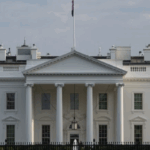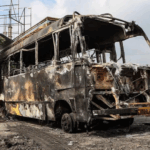British airports are facing significant disruptions as adverse weather, including heavy winds, fog, and now snow and ice, leads to delays and cancellations. The Met Office has issued an amber warning for snow and ice across parts of the Midlands, northern England, and Wales, further complicating air travel and prompting expectations of additional flight disruptions.
Passengers are growing frustrated as frequent bad weather events upend flight schedules, and many are questioning why modern technology hasn’t made airports and airlines more resilient to such disruptions. The answer lies in safety measures that air traffic control imposes during adverse weather conditions.
Despite advancements in aviation technology, aircraft are still required to adhere to strict safety limits when conditions worsen. Travel expert Simon Calder explains that when weather forces air-traffic controllers to increase spacing between planes—by as much as 50%—airport capacity is immediately reduced by a third, triggering cancellations.
For example, at London Gatwick, the UK’s second busiest airport, during recent fog, the spacing between aircraft increased, affecting around 75,000 passengers. Among them was James King, whose flight from Stockholm was diverted to Dublin for refueling due to the fog-related delays. The diversion ultimately led to an additional overnight stay in Stockholm, and King is still awaiting reimbursement for the £200 he spent on accommodation and meals.
At London Heathrow, severe winds caused further delays and cancellations in the lead-up to Christmas. While some airports are trialling artificial intelligence systems to help planes land in low visibility, on-the-ground controllers still need to see aircraft clearly to issue landing clearances, according to aviation expert Scott Bateman.
Despite these setbacks, British airports are investing in snow-clearing technologies and better training for staff. However, Calder points out that the UK may never reach the level of efficiency seen in countries like Iceland, where cold weather is more common.
Looking ahead, experts warn that climate change may exacerbate weather disruptions. Dr. Ella Gilbert from the British Antarctic Survey says that increased temperatures will likely lead to more frequent and intense precipitation and stormy weather, which will continue to impact aviation safety.
National Air Traffic Services (Nats) recognizes the balancing act required to keep air traffic safe and manageable, especially during storms. While pilots avoid flying through storms when possible, turbulence and unpredictable flight paths can contribute to delays and disruptions.
Passengers whose flights are cancelled due to weather are entitled to compensation under EU regulations. Airlines must offer meals, accommodation, and rebooking options, though compensation is not required for delays caused by bad weather.
As winter weather continues to affect British airports, travelers are advised to prepare for more disruptions and potential delays in the coming weeks.
















